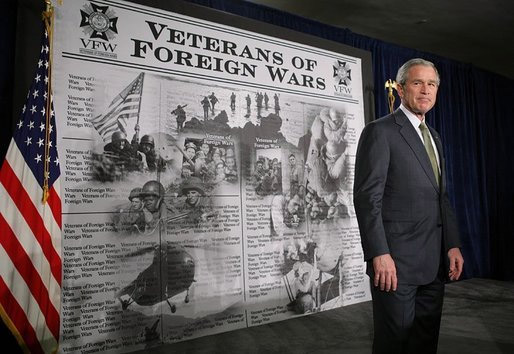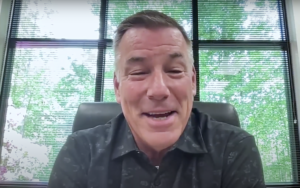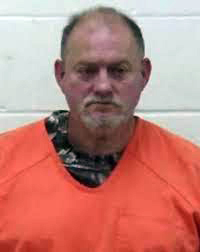
WASHINGTON (BP)–In the year ahead, Americans can expect to see increased violence against U.S. troops and Iraqi citizens as the young democracy struggles to gain its stride and as those who oppose it realize they are fighting a losing battle, President Bush said Jan. 10 in Washington.
“When the final election results come in, Iraqi leaders will begin working to form a new government. And in the weeks ahead, Americans will likely see a good deal of political turmoil in Iraq as different factions and leaders compete for position and jockey for power,” Bush told a gathering of the Veterans of Foreign Wars. “Our top commander in the region, General John Abizaid, has said he expects the coming weeks to produce ‘some of the hardest bare-knuckle politics ever in the Arab world.’ We should welcome this for what it is — freedom in action.”
Looks can be deceiving, Bush said, because dictatorships appear orderly while democracies can sometimes seem messy and chaotic as different groups compete for power and the chance to advance their agendas. Such seeming disorder has been visible throughout United States history, Bush noted, and out of the turmoil in Iraq will emerge a free government representing the will of the people.
“Our work in Iraq in 2006 will be focused on three critical areas,” the president said. “On the political side, we will help Iraqis consolidate the democratic gains they made last year and help them build democratic institutions, a unified government and a lasting free society.”
On the security side, he said, coalition forces will continue to battle the terrorists and continue to strengthen Iraqi security forces. And in regard to economics, the United States will continue to assist in reconstruction efforts and help the new government implement necessary reforms to allow a modern economy to prosper.
Among the first goals, the president said, is ensuring that Sunnis who “abandoned violence to join the political process now see the benefits of peaceful participation.”
“Sunnis need to learn how to use their influence constructively in a democratic system to benefit their community and the country at large,” Bush said, adding that although the promise of democracy begins with free elections and majority rule, it is fulfilled when minorities are given equal justice and a place to belong in society.
“A country that divides into factions and dwells on old grievances cannot move forward — and risks sliding back into tyranny,” Bush said. “Compromise and consensus and power-sharing are the only path to national unity and lasting democracy. And, ultimately, the success of Iraqi democracy will come when political divisions in Iraq are driven not by sectarian rivalries but by ideas and convictions and a common vision for the future.”
The advance of freedom, Bush said, is destroying the myth perpetuated by al Qaeda that the terrorists are fighting on behalf of the Iraqi people against a foreign occupation.
“They are fighting the will of the Iraqi people expressed in free elections,” he said of those who cause daily bloodshed mostly in the form of hidden bombs.
Bush congratulated the Iraqi forces who took the lead in protecting more than 6,000 polling centers during the December elections, and he said that as Iraqis see their own countrymen defending them against the terrorists, they’re beginning to step forward with needed intelligence. The number of tips from Iraqis has grown from 400 in the month of March 2005 to more than 4,700 last month, he said. And some of the new intelligence is being passed by Iraqi civilians directly to Iraqi soldiers and police in a display of confidence that is “helping to turn the tide in freedom’s way.”
Bush said the United States in the coming year will focus its efforts on improving the performance of the Iraqi police by establishing an ethics institute to educate recruits about the role of police in a democratic system. The U.S. also will work to increase the number of Iraqi border police from 18,000 to 28,000 by the end of the year, Bush said, so that the primary responsibility for all of Iraq’s borders can be handed over to the people who live within those borders.
With more than 80,000 local police officers across Iraq, Bush said their growing presence will “make it easier for local leaders and residents to accelerate reconstruction and rebuild their lives.” The goal is to have more Iraqis in control of more territory than the coalition by the end of 2006, he added.
“As Iraqi forces take more responsibility, this will free up coalition forces to conduct specialized operations against the most dangerous terrorists, like Zarqawi and his associates, so we can defeat the terrorists in Iraq so we do not have to face them here at home,” the president said to applause.
Concerning economics, Bush called on all governments that have pledged assistance for Iraq to follow through with their promises as quickly as possible, and he said more nations should follow the lead of small countries like Slovakia and Malta, which have written off Iraq’s debts to them completely.
The president warned of the political climate that will accompany an election year in the United States and said Americans should not fear the debate but should remember the difference between responsible and irresponsible debate.
“And it’s even more important to conduct this debate responsibly when American troops are risking their lives overseas,” he said.
“… When our soldiers hear politicians in Washington question the mission they are risking their lives to accomplish, it hurts their morale. In a time of war, we have a responsibility to show that whatever our political differences at home, our nation is united and determined to prevail,” Bush said. “And we have a responsibility to our men and women in uniform who deserve to know that once our politicians vote to send them into harm’s way, our support will be with them in good days and in bad days and we will settle for nothing less than complete victory.”
Bush asked that all Americans hold their elected leaders to account during the coming election year and that they “demand a debate that brings credit to our democracy, not comfort to our adversaries.”
–30–
















